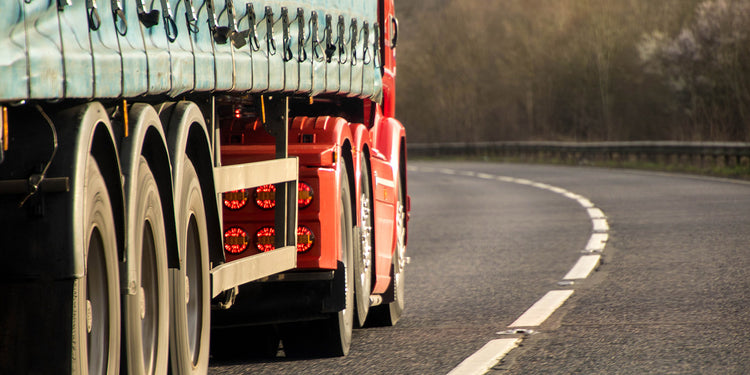
The history of the UK trucking industry
October 25, 2023
Nowadays, trucks and lorries are one of the most common sites on roads across the UK. They transport goods and materials of all kinds, from food and fuel to construction materials and manufactured goods. But did you know that trucks have been on our roads for more than a century?
The origins of trucks in the UK
The first trucks in the UK were steam-powered and were used to transport goods over short distances. In the early 1900s, petrol and diesel engines were introduced, which made trucks more powerful and efficient. This led to a rapid growth in the use of them for long-distance haulage.
One of the most important developments in the history of the UK truck industry was the introduction of the articulated lorry in the 1950s. Also known as tractor-trailers, articulated lorries are made up of two separate units: a tractor unit and a semi-trailer. The tractor unit provides the power, while the trailer carries the load. Articulated lorries are much more efficient than traditional trucks, as they can carry heavier loads and are easier to manoeuvre.
Another important development was the introduction of the roll-on/roll-off (RoRo) ferry in the 1960s. RoRo ferries allow trucks to be driven on and off the ferry without having to be unloaded. This made it much easier and faster to transport goods between the UK and other European countries.
Keeping modern day Britain moving
The use of trucks in the UK has continued to grow in recent decades. In 2021, there were over 4.2 million trucks registered in the UK. Trucks now carry over 70% of all goods transported in the UK.
While there have been a number of important milestones for the haulage industry over the past 130 years, some of the most significant are as follows:
- 1896: The first steam-powered truck is built in Leyland, Lancashire.
- 1904: Leyland builds its first petrol engine vehicle, nicknamed "the Pig".
- 1907: Leyland Motors Limited is formed.
- 1920s: The first articulated lorries are introduced to UK roads
- 1930s: The use of trucks for long-distance haulage grows rapidly.
- 1950s: The articulated lorry becomes widely adopted in the UK.
- 1970s: The oil crisis leads to a rise in fuel prices, which makes trucks more expensive to operate.
- 1990s: The introduction of new technologies, such as electronic data interchange (EDI) and satellite navigation, makes trucks more efficient.
- 2000s: The trucking industry faces new challenges, such as environmental concerns and rising fuel costs.
- 2010s: The introduction of electric trucks begins.
- 2020s: The trucking industry continues to evolve, with new technologies such as self-driving trucks emerging.
The future of trucks in the UK
The trucking industry is facing a variety of challenges in the future, including environmental concerns, rising fuel costs, and a shortage of drivers. However, the industry is also adapting to these challenges, with the development of new technologies such as electric trucks and self-driving trucks.
Electric trucks are becoming increasingly popular, as they offer several benefits over traditional diesel trucks, such as lower emissions and lower operating costs. Self-driving trucks are still in their early stages of development, but they have the potential to revolutionize the trucking industry.
The trucking industry is essential to the UK economy and society, and it is likely to continue to play an important role in the years to come.
